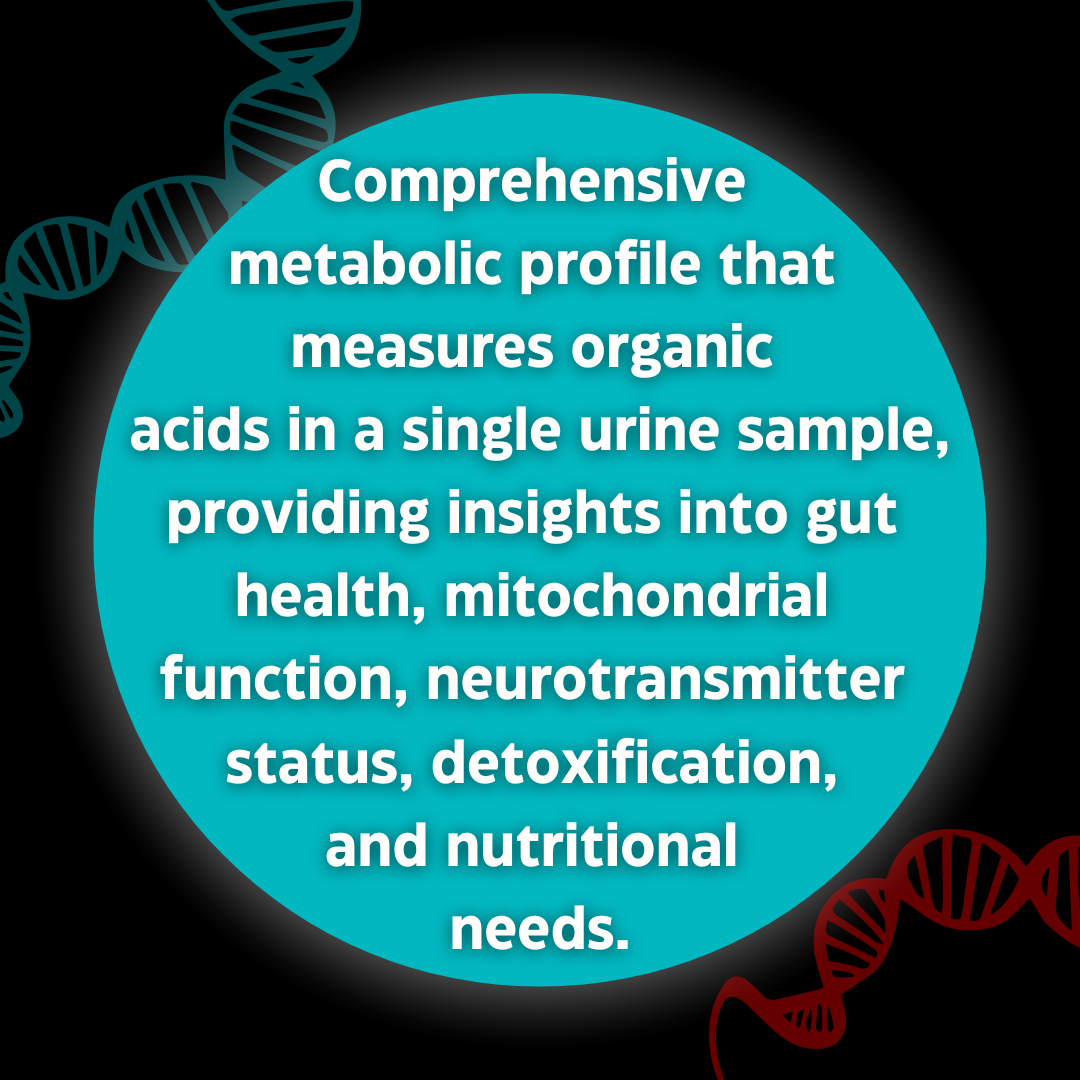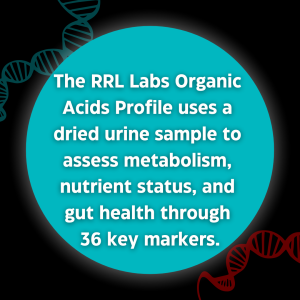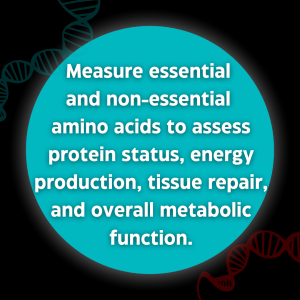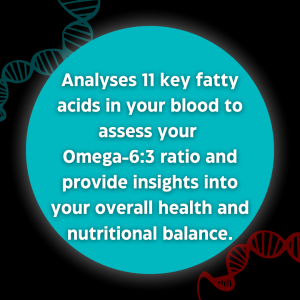Description
About Organic Acids
Organic Acids are chemical compounds which are used in essential metabolic processes of the body, these metabolic processes govern how your body changes food into the energy the body needs to grow, breath and function.
Organic acids are derived from the breakdown of protein, fat and carbohydrates from our diets and are used to generate cellular energy and provide the building blocks which are needed for all our cells to function.
How do Organic Acids work?
Organic Acids are the intermediary metabolites used in all metabolic processes in the body.
This means that they are used in the sequential steps (cycles) needed to complete the metabolic process. The metabolic processes include energy creation, through breaking down carbohydrates, fatty acids and proteins, neurotransmitter metabolism, detoxification and digestion. Enzymes are needed to convert organic acids to into the next metabolite needed in the cycle.
Our genes provide instructions for making proteins and enzymes, if there is a change / irregularity in these genes it can result in a breakdown in the cycle. Some enzymes require assistance from vitamins and minerals (called cofactors) for optimal functionality; insufficient levels of these cofactors could also affect the metabolic cycle. This would lead to abnormal levels of certain Organic Acids which may signal that the body is not functioning as it should.
What is Organic Acid Testing
The Organic Acids Test provides a metabolic snapshot of your overall health through an evaluation of your metabolism, nutritional insufficiencies as well as the function of your gut.
The test analyses groups of various metabolic intermediates to determine the how well your body is functioning.
Various internal and external factors may influence your Organic Acid levels including oral antibiotic intake, high carbohydrate, fatty acid or protein diets, immune or nutrition deficiencies, acquired (chronic/acute) infections, or certain genetic factors.
What can you expect from Organic Acid Testing
Using the results, a Health Care Practitioner can determine the need for specific nutrients, diet modification, antioxidant protection, detoxification, or other therapies.
It can also assess any imbalances which may exist in your gut. Your Health Care Practitioner can individual tailor their treatments which may enhance other treatments, increase your overall health outcomes and their ability to combat chronic illness.
People have noted health improvements such as decreased fatigue, regular bowel function, increased energy and alertness, increased concentration, improved verbal skills, less hyperactivity, and decreased abdominal pain when following their tailored treatment recommendations.
When to do an Organic Acid Test
An Organic Acid test may be beneficial if you are suffering from mood disorders, fatigue, digestive complaints and weight issues, or for people simply looking for general health and dietary guidance or even sports-performance optimization.
This may also be beneficial for individuals with autism, mental health problems, autoimmune disorders, cancer and sleep disturbances. Gut disturbances have been recognized as a contributing factor to behaviour and movement disorders and hyperactivity, it may also affect energy production and immune function.





